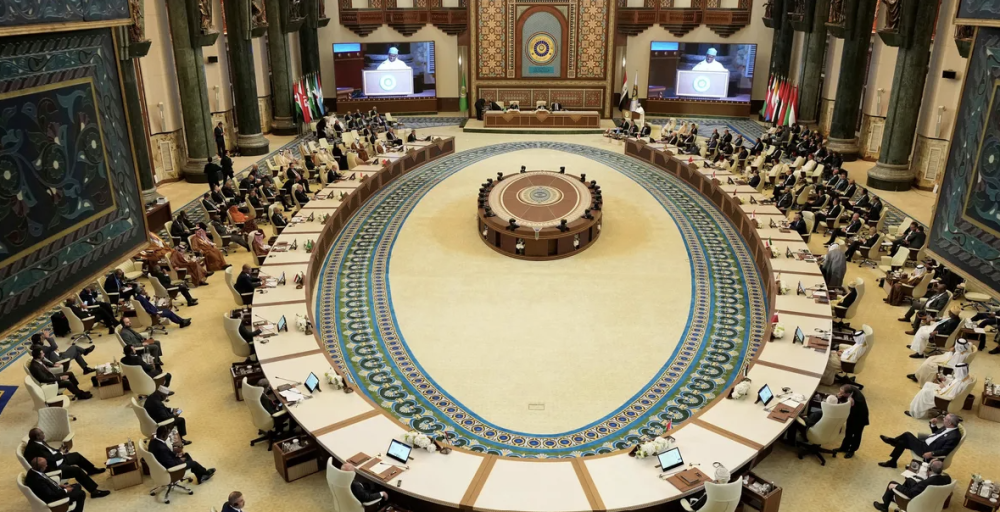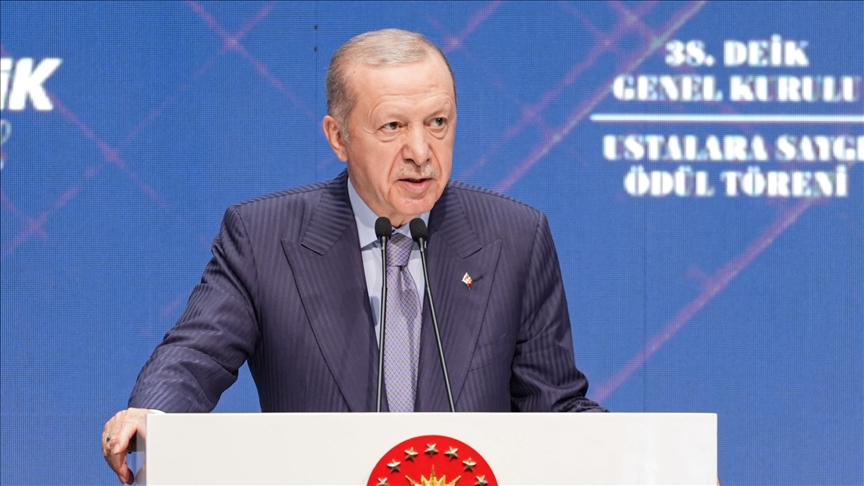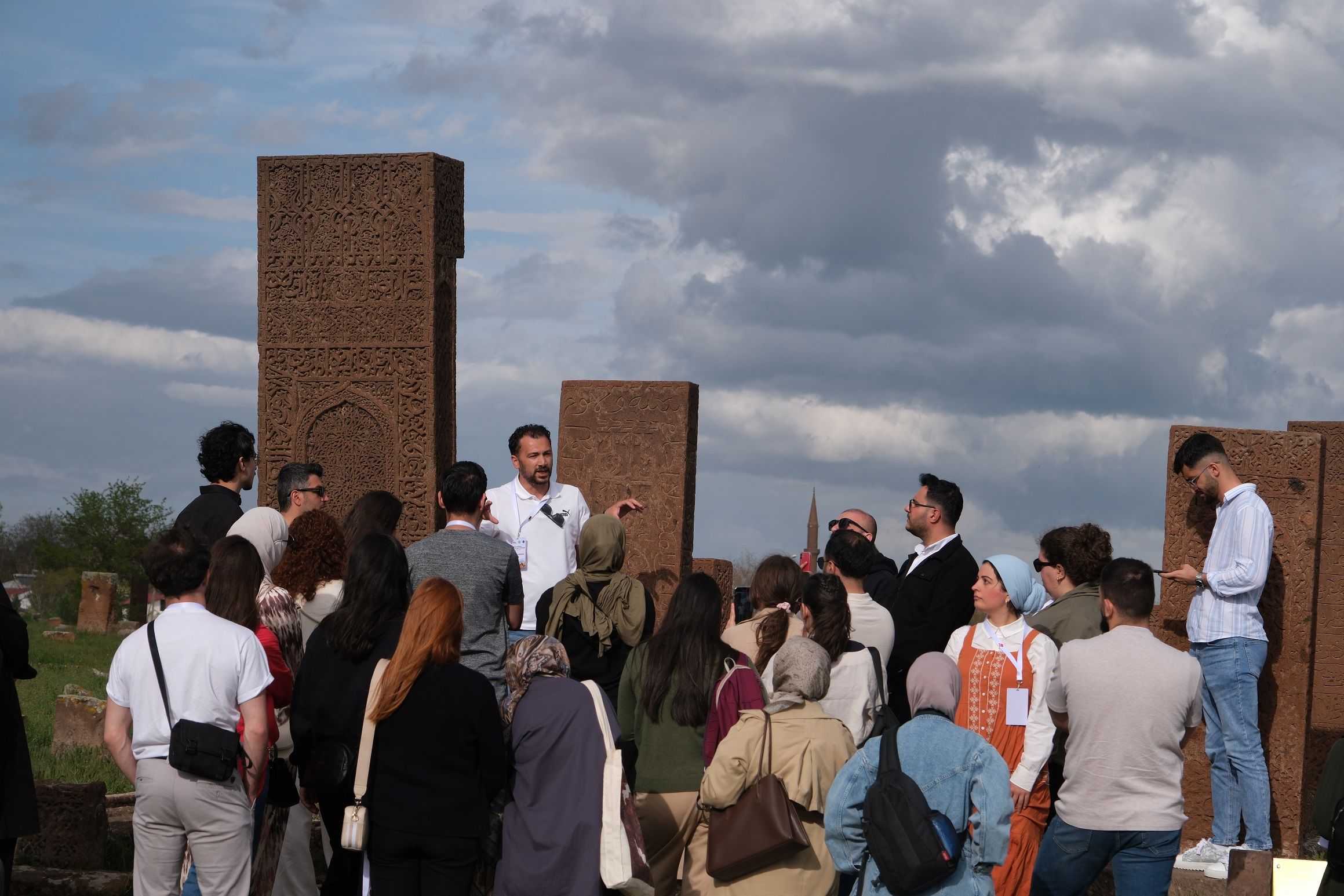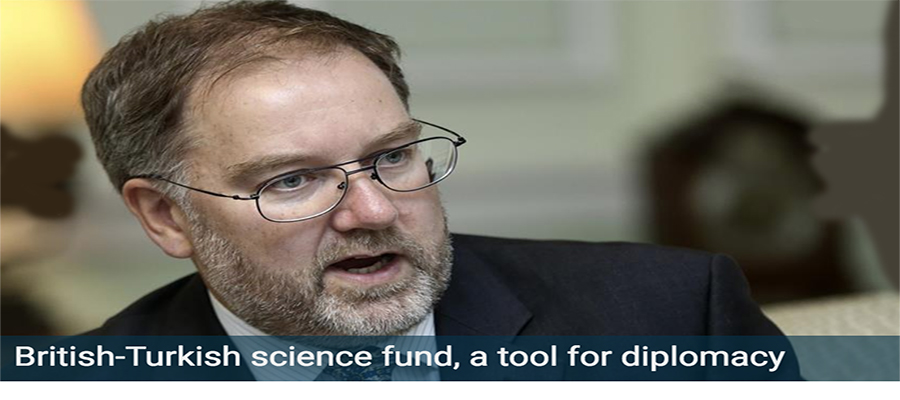ENGLISH
British-Turkish science fund, a tool for diplomacy
Katip Celebi-Newton Fund helps create ties between Turkish, UK scientists, says British chief scientific adviser
ANKARA
Turkey and the United Kingdom's mutual initiative, the Katip Celebi-Newton Fund, aims to build strong, sustainable, systemic relationships, according to the U.K. Foreign and Commonwealth Office (FCO) chief scientific adviser.
In an exclusive interview, Robin Grimes told Anadolu Agency that the fund creates the opportunity to build strong partnerships between U.K. and Turkish scientists, researchers and institutions.
"So far the Katip Celebi-Newton Fund has given 207 awards, of which size is around £13 million [nearly $20 million] reaching 79 different institutions from 26 cities in Turkey," Grimes said.
The Newton Fund was launched in 2014 and has raised £735 million (around $1 billion) of U.K. investment that will last up to 2021. Eighteen partner countries have agreed to match those resources.
Grimes noted that Tukey had committed to allocate up to £28 million (some $37 million) in total until the end of the bilateral science and innovation funding program, i.e. 2021.
"We should also remember that there are over 3,000 Turkish students at British universities," he said.
"Looking forward, I believe we will see an extension to the U.K.-Turkey collaboration, though we have work to do if we are going to bring this about," Grimes added.
In Turkey, the U.K. has been working with the Scientific and Technological Council of Turkey (TUBITAK), as its main local partner under the name Katip Celebi-Newton Fund.
Katip Celebi, a Turkish scholar, lived between 1609 and 1657 in the Ottoman Empire, and worked in the fields of history, geography, and social sciences.
In 2009, the 400th anniversary of Katip celebi's birthday was officially celebrated by UNESCO.
Science diplomacy
Professor Grimes praised the merits of science diplomacy, which he explains, permits science networks to be engaged to build and improve political, social and economic cooperation between countries.
"Science in diplomacy means using science to inform foreign policy objectives by providing robust evidence or access to people and networks, for example to tackle global challenges like climate change," he said.
"Diplomacy for science helps scientists to achieve their goals, whether that is bringing research institutes together, providing access to and funding big projects, such as CERN [ European Organization for Nuclear Research]," Grimes said.
"Science for diplomacy is using science conversations as a beachhead in politically difficult circumstances, leading to improved political, social and economic understanding and collaboration," he added. "Scientists are familiar with working internationally and used to disagreeing and therefore skilled at taking a constructive and objective approach to difficult issues."
Grimes also talked about the changes he noticed in Turkey, saying the country's economy had shifted rapidly from an economy largely based on agriculture towards a manufacturing economy.
"Turkey is now a major European automotive producer and a significant manufacturer of electronics and home appliances," he said.
Grimes said Turkey is of increasing importance to the U.K. as an emerging economy, noting that the country was an increasingly important international and regional player as a NATO ally and a G20 member.
"While Turkey has been successful in sustaining this growth, like many other countries, Turkey faces challenges in generating R&D human resources," he said.
Grimes pointed out that Turkey would benefit from increasing R&D personnel, fostering a research culture and develop researchers’ skills, mobility and the availability of employability.
"The evidence is this is achieved best through collaboration. This is why the Katip Celebi-Newton Fund is very significant for both," he added, stressing the importance of integrated research and innovation approach.

Türkiye delivered the 455,000th disaster housing unit to earthquake survivors

31 Arab, Muslim countries condemn Netanyahu's 'Greater Israel' goals

“Love in Scutari” Continues to Attract International Literary Attention

Geopolitical risks that began with Gaza genocide escalated by Israel’s regional attacks: Turkish president

Gaza death toll nears 61,400 amid Israel’s genocidal war

A Rise of Islamophobia in Canada

Turkish Technology Professionals from Around the World Meet on the TurkTechDiaspora Platform

Gaza death toll nears 53,300 as Israel continues its genocidal war

YTB sheds light on the Armenian issue in the shadow of historical sites

Police warn of 'distraction thefts' targeting Muslim community

Fired Microsoft employees accuse company of enabling Israel’s attacks on Gaza

Gaza death toll tops 51,100 as Israeli army kills 92 more Palestinians

Gaza death toll passes 50,500 mark amid ceaseless Israeli attacks

Islamophobia and anti-Palestinian racism in Canada higher than after 9/11, warns expert



